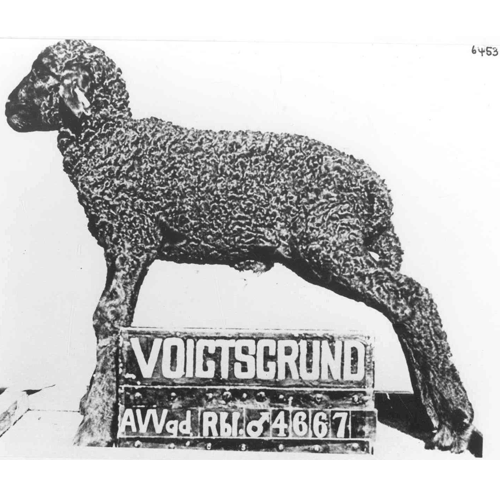Karakul Circulations: Colonial Economies and the Un_Making of Disciplinary Knowledges in Germany and Namibia

Karakul sheep were first brought to Namibia in 1907 as part of a German colonial project. As Swakara, their pelts are sold to high end fashion designers. Until global fur markets collapsed in the 1980s and 1990s, Karakul farming was one of the most important industries in Namibia. Today, Swakara is embedded within narratives of sustainability, indigeneity, animal cruelty and development.
In our project, we are interested in the circulations of people, sheep and knowledges in and through post_colonial spaces and timescales. These Karakul circulations mark and transgress boundaries of race and species in multiple ways. Bred on an experimental farm in Halle (Germany) in the early 1900s, the sheep were exported to the colony of South-West Africa, where they played a major role in colonial settlement and economies. They were also crucial agents in scientific controversies on agriculture, Mendelian genetics and race. In our project, we approach these circulations through different sets of relations. In spatial terms, Karakul sheep connect Germany, colonial South-West Africa, Namibia and South Africa with other regions in the world. They are embedded in specific articulations of power and violence. Temporal circulations bring together German colonialism, South African imperial rule, colonial revisionism in Nazi Germany as well as heritage debates in independent Namibia. Karakul circulations also refer to traveling knowledges, their performed boundary work as well as the silences and absences they represent.
Key questions
Our research is organized around three overlapping trails that correspond with a set of key questions:
- The making and unmaking of (scientific) knowledges around race and species.
- Practical and embodied knowledges around human-sheep relations as a way of life and form of production.
- The interface between (non-discursive) colonial knowledges, silences and modes of presence.
Please find the link to the entire project here.

